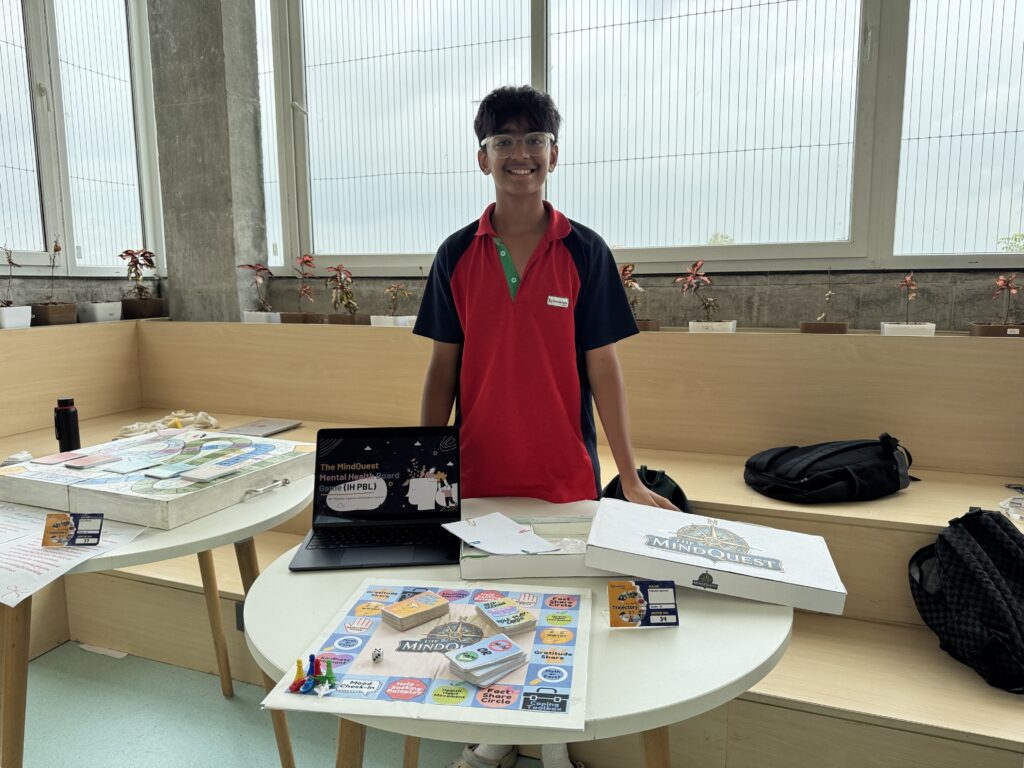by Priyansh Agarwal
Project Outcome: Board Game
Project Description: This project centered around designing and creating a self-made educational board game that provided a fun and engaging way for students to learn about mental health. Inspired by the mechanics of Monopoly, the board featured landing spaces around the edges and a central area for cards, but all gameplay elements, rules, and content were originally developed by the student.
The final product aimed not only to entertain but also to raise awareness, encourage reflection, and foster open conversations around mental well-being. Through scenarios, challenges, and reflective prompts, players subconsciously learned about coping strategies, empathy, and the importance of mental health while enjoying the game.
To promote sustainability, the physical components of the board game—including the board and box—were upcycled from an old, unused game, thereby reducing waste and reinforcing the creative reuse of resources.
Undertaken as part of the Grade 10 Integrated Humanities PBL, the project was self-initiated and combined the student’s personal interest in mental health with creativity, design, and innovation. The process involved researching the importance of mental health awareness among students, analyzing existing board games to understand engaging mechanics, designing original cards, rules, and layouts, and prototyping the game using sustainable materials. The student also conducted playtesting with peers to refine the game’s usability and educational impact.
Over a period of two months, the project integrated research, design thinking, and reflection, culminating in a functional and thoughtfully crafted board game that made learning about mental health interactive and enjoyable. This project stood out for addressing two critical issues—mental health awareness and environmental sustainability—through an innovative, student-friendly approach that was both meaningful and exhibition-worthy.
